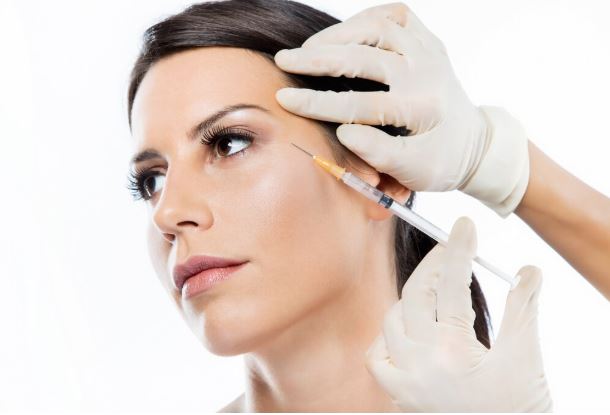Whitening injections are becoming popular in many parts of the world. They are used by people who want to lighten their skin tone quickly. These injections often contain ingredients like glutathione, vitamin C, or other antioxidants. While they may offer quick results, many whitening injection side effects are not aware of the possible side effects. It is important to understand what these side effects are before using such treatments.
What Are Whitening Injections?
Whitening injections are treatments used to lighten the skin. Most of them contain glutathione, which is a natural antioxidant made by the body. It helps remove harmful substances and keeps the skin healthy. When taken in high doses through injections, glutathione is believed to block the production of melanin. Melanin is the pigment that gives skin its color. By reducing melanin, the skin appears lighter.
These injections are usually given through a vein. Some people may take them once a week or more often, depending on the treatment plan. The results can vary from person to person. Some may see changes in their skin tone after a few sessions, while others may take longer.
Why People Choose Whitening Injections
People choose whitening injections for different reasons. Some want to look fairer due to personal preference or social pressure. Others may want to treat dark spots, acne scars, or uneven skin tone. The idea of achieving quick results is appealing to many.
In some cultures, lighter skin is often linked with beauty or success. Because of this, whitening treatments, including injections, have become a big trend. However, most people do not take time to learn about the risks. Using these injections without proper knowledge or medical advice can lead to serious health problems.
Common Whitening Injection Side Effects
While whitening injections may give temporary results, they can also cause side effects. Some side effects are mild, while others can be serious. Here are some of the most common ones:
-
Allergic reactions
Some people may be allergic to the ingredients in the injection. This can lead to skin rashes, itching, or swelling. In rare cases, it can cause a severe reaction known as anaphylaxis, which is life-threatening and needs urgent medical help.
-
Skin problems
Instead of making the skin lighter, the injection can cause uneven skin tone, red patches, or peeling. The skin may also become thinner or more sensitive to sunlight.
-
Kidney damage
Taking high doses of glutathione and other substances can affect the kidneys. The kidneys are responsible for removing waste from the body. Overuse of whitening injections can make it harder for them to work properly.
-
Liver problems
The liver helps break down and remove toxins. Whitening injections can put extra pressure on the liver. In some cases, this can lead to liver damage, especially when the injections are taken too often.
-
Infections
If the injection is not given under clean and safe conditions, there is a risk of infection. Dirty needles or poor hygiene can lead to serious infections, including HIV or hepatitis.
-
Breathing problems
Some ingredients in the injection can affect the lungs. This can cause coughing, shortness of breath, or chest tightness. If not treated in time, it can lead to serious breathing issues.
-
Changes in hair and nails
There are cases where people noticed changes in hair color, hair loss, or brittle nails after using whitening injections. These are signs that the body may be reacting badly to the treatment.
-
Mental health effects
Constant worry about skin color and the pressure to look a certain way can affect mental health. Some people may feel sad, anxious, or lose confidence if they do not get the results they want.
Long-Term Effects of Whitening Injections
Using whitening injections for a long time can increase the risk of side effects. The body may get used to the high levels of certain substances, which can cause imbalance. Over time, this can damage important organs like the liver, kidneys, and heart.
Also, some studies suggest that using such treatments regularly might lower the body’s natural ability to fight disease. This means the immune system becomes weaker, making it easier to get sick.
Some people have also reported that their skin goes back to its original color after stopping the injections. This means the effects may not be permanent, even after spending a lot of money.
Who Should Avoid Whitening Injections
Whitening injections are not safe for everyone. People with the following conditions should avoid them:
-
Pregnant or breastfeeding women
-
People with kidney or liver disease
-
Those with asthma or breathing problems
-
People with a history of allergic reactions
-
Children and teenagers
It is also important to avoid injections from untrained or unlicensed providers. Only a qualified medical expert should give this type of treatment.
Safer Alternatives to Skin Whitening
Instead of using injections, there are safer ways to improve skin tone and health. Eating a healthy diet, drinking plenty of water, and using sunscreen every day can help the skin look better. Using gentle skincare products with natural ingredients is also a good option.
Vitamin-rich foods like fruits and vegetables can improve skin glow over time. Regular exercise and enough sleep also play a big role in keeping the skin healthy.
If someone wants to treat specific skin issues, they should visit a dermatologist. A skin doctor can suggest safe treatments based on the person’s skin type and condition.
Conclusion
Whitening injections may seem like a quick and easy way to get lighter skin. However, they come with many risks. The side effects of these injections can affect not only the skin but also other important organs. Some of these effects can be serious and long-lasting.
Before choosing such treatments, it is important to learn about the risks and talk to a medical professional. Health should always come first. Taking care of your body and accepting natural beauty is always better than putting your health at risk.
Whitening injection side effects are real and should not be ignored. Think carefully, stay informed, and make safe choices for your skin and overall health.





